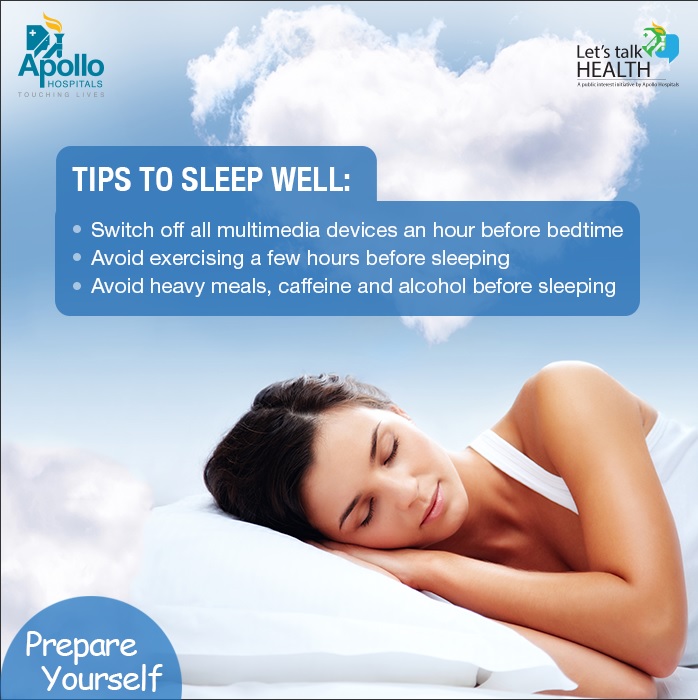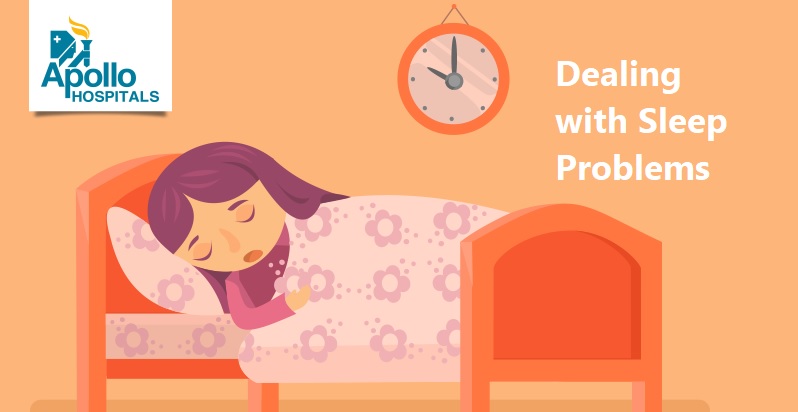For a healthy heart, good sleep is necessary. If speaking in medical terms, regardless of your age, weight, exercise, or smoking habits, less sleep can result in a greater risk of coronary heart diseases and cardiovascular diseases. Therefore, to reduce the risk of such diseases, a good night’s sleep is extremely vital.
Importance of Sleeping Properly at Night
As per research, sleeping less can disturb the biological processes of the body like blood pressure, glucose metabolism, and inflammation and can cause disturbances in the primary health conditions as well. That being said, this can hold true for oversleeping as well. So, ensuring that you have proper sleep at night is quite important.
Not only does proper sleep help in maintaining a healthy heart but can also help regulate your mood and improve your memory, intelligence quotient, energy level, and overall health. In addition to this, it also helps in staying focused on a task or learning new skills that you are working on and can help in controlling your weight as well. Sleep helps the body regulate hormones, which contributes to maintaining a healthy immune system. So, if you deal with the issues you have with having a good sleep, the burden on your heart can be eased.

Tips for Sleeping Well after a Heart Attack
Many times, a heart attack can lead to you feeling emotional and anxious. This can affect the quality of your sleep. Proper sleep can aid your recovery and if you are not able to sleep comfortably at night after your heart attack, here are a few tips that you can follow –
- Spend Some Quiet Time: For about an hour before you go to sleep, spend some quiet time relaxing. You can try reading a book or meditate to relax. Avoid watching TV or browsing your computer or mobile before you go to sleep. Also, depending on the climate, a hot or cold bath can enhance your relaxation. Sipping on a cup of herbal tea before bed can also help.
- Listen to Soothing Music: One of the best ways to induce sleep is by listening to some soothing music or soft songs. It is advisable to play it on the sound system with a low volume; however, if you are sleeping with a partner, you can use headphones.
- Set a Lie Awake Time Limit: Another way of having a good sleep is by setting a time limit for lying awake on the bed. For example, if you set a time limit of 20 minutes, simply lie on the bed for this duration and try to sleep. However, if you are still awake after the set time limit, then wake up until you start feeling sleepy. This process will not work overnight and might take a few days. However, once you get used to it, your sleep pattern will become better.
- Exercise During the Day: Yet another good practice for a sound sleep during the night is exercising regularly during the daytime. Since working out makes your body active, you tend to do more work throughout the day. So, at night, when you hit the bed, you fall asleep quickly and can also sleep a little longer. Exercising regularly helps in cardiac rehabilitation and also helps with undisturbed sleep.
- Avoid Caffeine in the Evening: Stimulants like tea, coffee, sugary drinks, soda, or chocolate affect the brain and body. They make the brain more alert, which although is a good thing during the day, makes it harder for you to sleep during the night. Also, they increase the blood pressure, blood sugar, narrowing of blood vessels, and heart rate. The intake of stimulants causes the body to be in a state of heightened awareness, which makes it difficult to relax.
- Avoid Sleeping Pills: Sleeping pills may provide short-term relief but getting dependent on them may turn out to be dangerous. Such medicines have a lot of side-effects that may lead to a decrease in the quality of your life. Unless advised by your doctor, strictly avoid taking sleeping pills.
Tips to Sleep Well After a Heart Surgery
Going back to your regular life after heart surgery can be quite stressful. However, it is very important for your recovery for you to be able to sleep well. You can try some relaxation and breathing exercise techniques to help you cope up with unwanted stress, leading to better sleep at night.
Recommended Sleeping Positions
In case, you face issues while sleeping after the surgery, you can try the following sleep positions:
Upright: The recommended sleeping position for the first few weeks after the surgery is an upright position, while the chest bone heals. You can sleep in a recliner or a foldable bed as they are quite comfortable. Use a neck pillow to support your neck and spine. However, one challenge with the upright position is that it doesn’t allow for continuous and good quality sleep. Therefore, this position is not recommended for a very long time.
Back: The recovery of heart surgery is gradual and once it starts, it is necessary that you keep strain off your chest and heart as much as possible. Your doctor will recommend sleeping on your back, which allows your head, neck, and spine to be aligned properly, thereby reducing the pressure of the chest and heart. However, if it becomes a little difficult to get in or out of the bed, make sure that you have enough support (pillows) for an easier transition.
Right side: Some individuals have the habit of sleeping on their stomach, however, after the heart surgery, this posture is not recommended. So instead, you can try sleeping on your side. But, make sure you only sleep on your right side as sleeping on the left side can cause breathing problems and more chest pain.
Other Sleeping Tips
- Many heart surgery patients have complained about an awareness of their heartbeats while they are trying to sleep. This is not something to be worried about; it is a common thing that occurs after had heart surgery and eventually goes away within the first few weeks after the procedure.
- Another tip for a good sleep after heart surgery is to have a proper balance of food, exercise, and rest, which also helps in faster recovery. However, consult with your doctor first and only after their go-ahead should you start with this routine. It will help you sleep quicker and better.
- Another tip is to avoid sleeping during the day. Although you can rest for a while, if you sleep during the day, you will not get sleep at night.
- take your prescribed medicines and painkillers at least 30 minutes before going to bed. It will help in inducing sleep.
- Strictly avoid coffee, chocolate, tea, or any sugary beverages in the evening. They contain caffeine and stimulants, which makes your brain alert.
Adjusting to life after heart surgery can be stressful but you will be back to your normal sleeping pattern gradually. However, if you face issues or notice a change or lack of sleep that is affecting your health, consult your doctor at the earliest.
Irrespective of whether you had heart surgery or have experienced a heart attack, good and undisturbed sleep is extremely important. If you are having trouble sleeping, which is impacting your lifestyle and health, fix an appointment with your doctor immediately. Ensure that you inform your doctor about the medication you are on.


